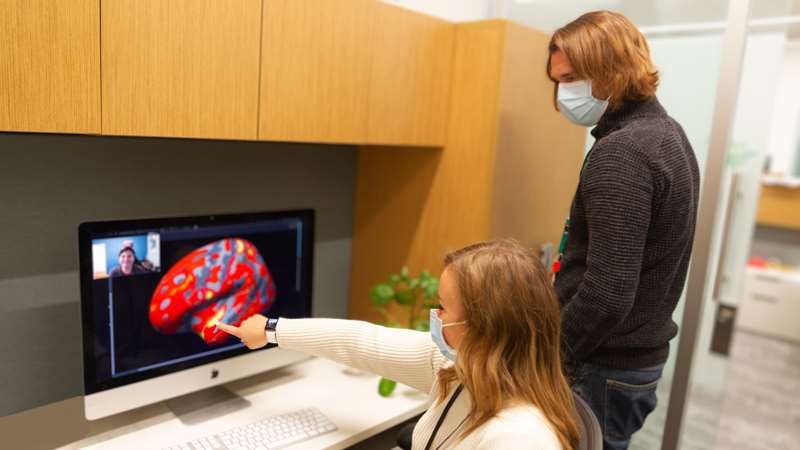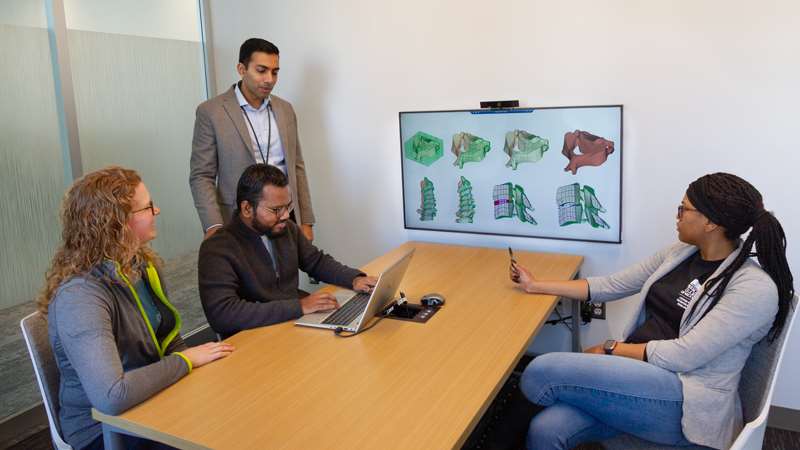Medical College of Wisconsin Neurosurgery Research
Research in MCW's Department of Neurosurgery includes three distinct research programs supporting multiple centers and laboratories at the Clement J. Zablocki VA Medical Center and MCW's Milwaukee campuses.
Our Research Mission
Our mission is to conduct innovative research that:
- advances the science of neurotrauma and neurologic disease
- has a positive translational impact on clinical care
- fosters the development of scientists
- improves the health of our community
Our Research Vision
Our vision is to be a world-class center for neurotrauma research that positively impacts the lives of people affected by neurologic injury and disease.
Center for Neurotrauma Research
The Center for Neurotrauma Research seeks to advance the science of neurological trauma and related diseases, enhance the translation of brain and spinal trauma research into clinical care innovations, foster the professional development of future scientists, and improve the health of communities throughout the region and state. Within MCW, the CNTR functions as a collaborative hub for neurotrauma research and will create a synergistic collaboration with other MCW Centers such as the Comprehensive Injury Center, Neuroscience Research Center and the Center for Imaging Research.
MCW's Center for Neurotrauma Research is co-directed by Shekar Kurpad, MD, PhD, Sanford J. Larson Professor and Chair of Neurosurgery; and Michael McCrea, PhD, Professor of Neurosurgery, Eminent Scholar, Vice Chair of Research and Director of Brain Injury Research at the Medical College of Wisconsin.
Center for Cervical Myelopathy
Neurosurgery Research Programs
Research from the Department of Neurosurgery includes multimodal investigations into the generation and treatment of brain injury, biomechanics and spinal cord injury.
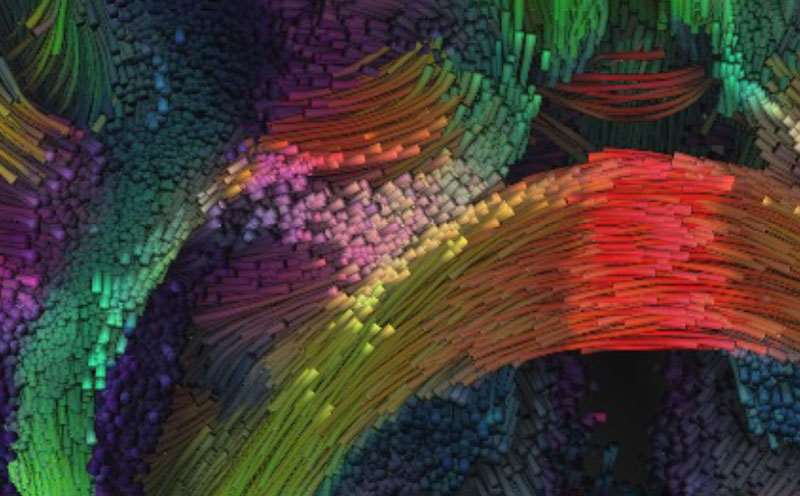
Brain Injury Research
The Brain Injury Research Program in MCW's Department of Neurosurgery includes investigations into the acute and chronic effects of traumatic brain injury.
Learn more about the Brain Injury Research Program
Biomechanics Research
Neurosurgery Biomechanics research is carried out at the ZVAMC Labs and includes investigations into the biomechanics of trauma and biomechanics of the spine.
Learn more about Biomechanics Research at ZVAMC Labs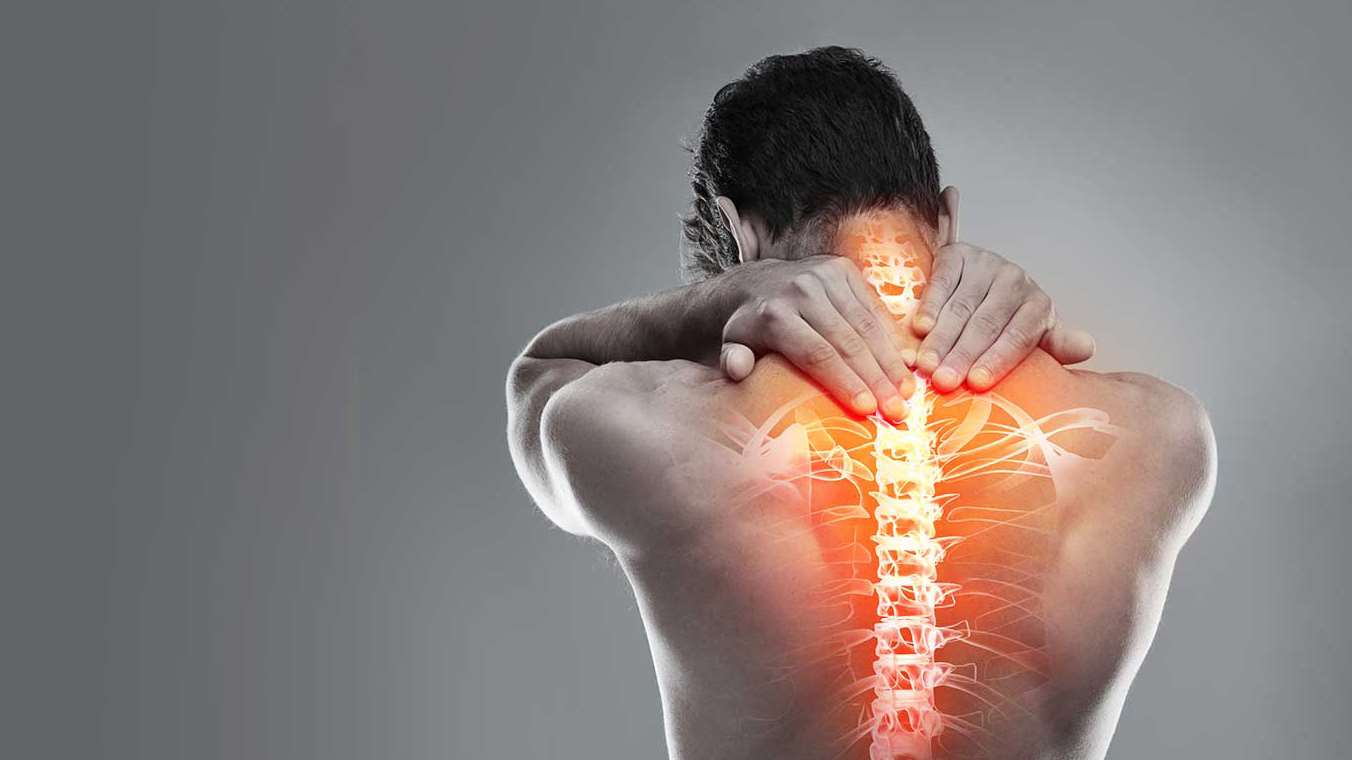
Spinal Cord Injury Research
Investigations into Spinal Cord Injury at the MCW Department of Neurosurgery seek to improve the recovery and quality of life for patients affected by acute and chronic SCI.
Learn More about SCI Research at the Department of NeurosurgeryNeurosurgery Research Laboratories
Led by members of our world-class faculty, research laboratories at the Medical College of Wisconsin's Department of Neurosurgery specialize in a wide range of disciplines encompassing brain and spinal cord injury and trauma biomechanics. All have an end-goal of bettering the lives of individuals impacted by neurological disorder, injury, or disease.
Budde Laboratory

The Budde Lab develops and employs magnetic resonance imaging (MRI) as a tool to understand spinal cord biology and pathology.
Learn more about the Budde Lab
Gupta Laboratory
The Gupta Lab studies the genes and molecular pathways responsible for the development of mesial temporal lobe epilepsy, the most common form of focal epilepsy.
Learn more about the Gupta Lab
Kroner Laboratory
The Kroner Lab investigates tissue protection after spinal cord injury by interrupting inflammatory processes that promote tissue damage and neuronal death.
Learn more about the Kroner Lab
Krucoff Laboratory
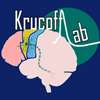
The Krucoff Lab investigates the physiology of human motor systems to improve outcomes for patients with central nervous system injuries.
Learn more about the Krucoff Lab
Kurpad Laboratory
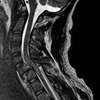
The Kurpad Lab seeks a translational treatment approach to reduce secondary damage after injury and to improve quality of life after spinal cord injury.
Learn more about the Kurpad Lab
Meier Laboratory
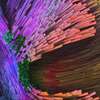
MCW's Meier Laboratory uses advanced imaging, clinical and behavioral testing to investigate the acute and chronic effects of traumatic brain injury.
Nelson Laboratory
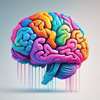
The Nelson Lab studies patients’ feeling and functioning after TBI to improve clinical endpoints, better understand patient heterogeneity, and develop patient-centered improvements in clinical care.
Learn more about the Nelson Lab
NEMo Laboratory

The Neural Engineering & Modulation Lab develops novel neuroprosthetic and gene-therapy approaches to alleviate motor deficits caused by conditions such as SCI or amyotrophic lateral sclerosis.
Rey Laboratory
ReyLab develops new tools for data acquisition and analysis of electrophysiological data in the human brain through the use of advanced medical imaging, intracranial electroencephalography and single cell and local field potentials.
Vedantam Laboratory
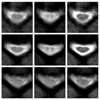 MCW's Vedantam Laboratory seeks to improve the lives of people suffering from spinal cord dysfunction through investigations into the pathophysiology of disease states and recovery of function after injury.
MCW's Vedantam Laboratory seeks to improve the lives of people suffering from spinal cord dysfunction through investigations into the pathophysiology of disease states and recovery of function after injury.
Learn more about the Vedantam Lab
Yoganandan Laboratory

The Yoganandan Lab develops personalized medicine for spinal disorders, develops response corridors and injury risk functions for the head and spine, and determine human head-spine responses under physiologic and traumatic loads.
Learn more about the Yoganandan Lab


